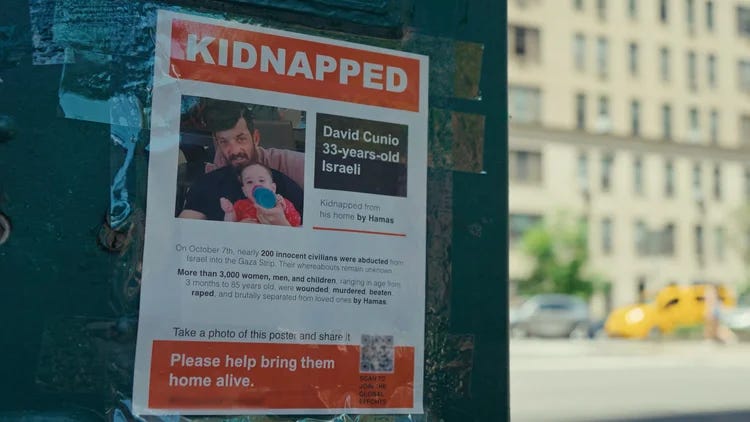'Torn: The Israel-Palestine Poster War On NYC Streets' Review
While not entirely balanced, Nim Shapira's documentary promotes empathy for all by focusing on the human element of war and other conflicts.
Propaganda can be well-intentioned. It can be dangerous. It can be art. It can be uplifting. It can be hurtful. It can be anything and everything. With all communication, the motive and purpose of the message are key. But so are the reception and perception. While misunderstandings and misinterpretations are not necessarily the fault of the messenger, t…



